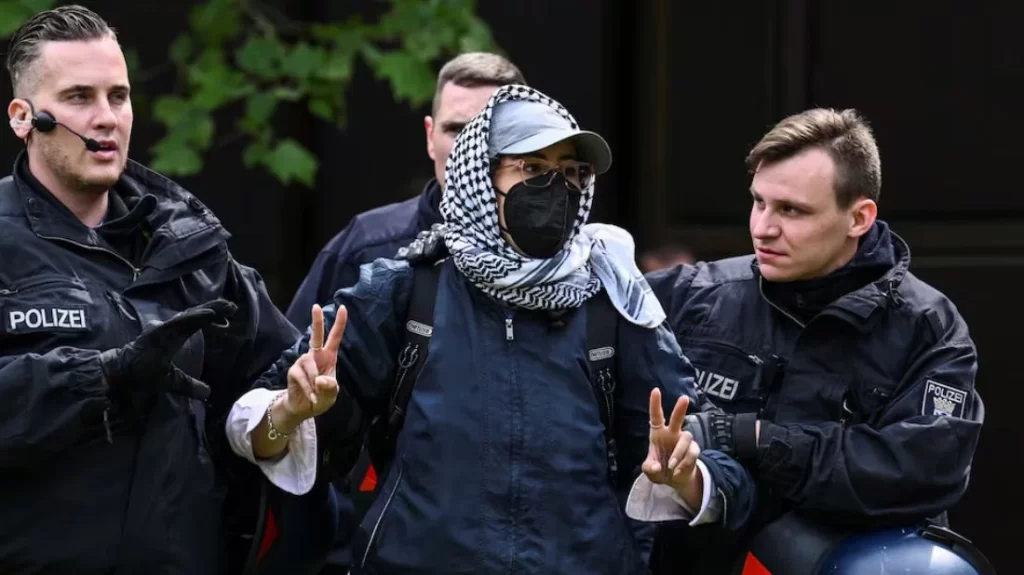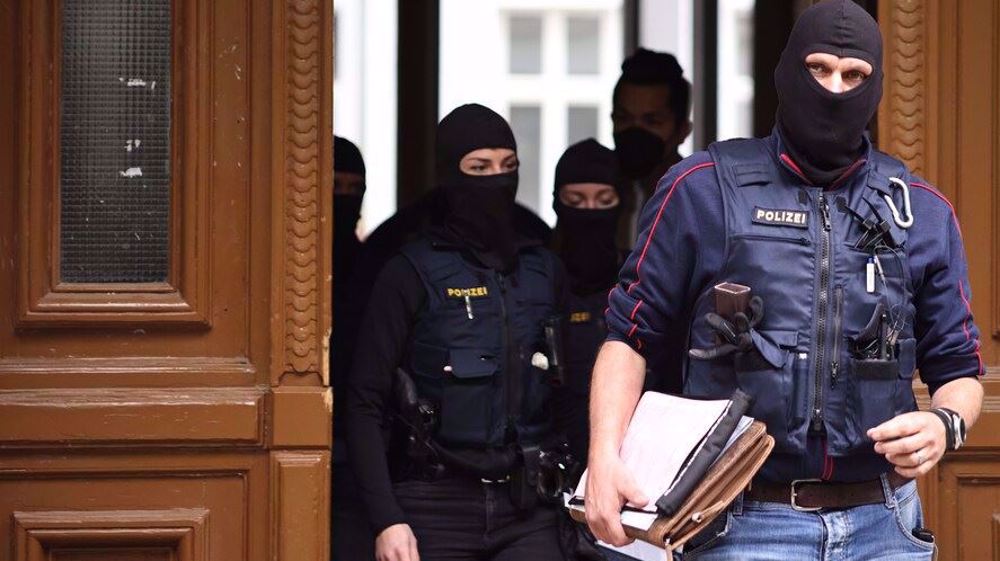German authorities conducted raids on Monday targeting five men in Berlin suspected of criminal offenses related to pro-Palestinian activities, as the country continues to grapple with tensions surrounding the Israel-Hamas conflict.

The Berlin police and public prosecutor’s office said the raids, involving 125 officers, were carried out in the districts of Friedrichshain, Britz, Gropiusstadt, Tegel, and Schöneberg. The suspects, aged between 18 and 40, are under investigation for breaching the peace, incitement, and using symbols of organizations banned in Germany.
“These actions are part of our ongoing efforts to maintain public order and prevent the spread of hate speech,” said a spokesperson for the Berlin police, who requested anonymity due to the sensitive nature of the operations.
Authorities seized mobile phones, computers, and other data storage devices, which are now being evaluated. No arrests were made during the raids.
One of the suspects, an 18-year-old, is accused of throwing a microphone stand at Berlin’s culture minister, Joe Chialo, during the opening of a local arts center in mid-September. The incident has raised concerns about the safety of public officials amid heightened tensions.

Another suspect, a 31-year-old, is under investigation for alleged incitement after reportedly posting on Instagram, wishing for “the return of Adolf Hitler” and “a new Holocaust,” according to prosecutors.
These raids come amid a series of pro-Palestinian protests in Berlin since the October 7 Hamas attacks on Israel and Israel’s subsequent military campaign in Gaza. German authorities have frequently intervened in these demonstrations, citing concerns over anti-Semitic slogans and violence.
However, the government’s approach has drawn criticism from some quarters. Civil liberties advocates argue that German authorities may be overreaching in their efforts to suppress what they view as anti-Semitic speech, potentially infringing on freedom of expression.
“There’s a fine line between preventing hate speech and suppressing legitimate political discourse,” said Dr. Anna Schmidt, a political scientist at Humboldt University in Berlin. “The German government’s sensitivity to this issue, while understandable given historical context, risks overshadowing important debates about the current conflict.”
As investigations continue, the incident highlights the complex interplay between Germany’s historical responsibility, current geopolitical tensions, and the protection of civil liberties.


